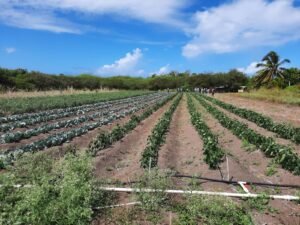Agriculture Education in Canada. The agriculture industry in Canada is one of the main pillars of the economy. It plays a significant role in the country’s growth, contributing approximately 6.7% of Canada’s GDP as of 2020, and employing around 2.3 million people. With the industry’s significant role, agriculture education is paramount to ensure sustainable and innovative farming practices are adhered to. Canada’s education system has given special focus to agricultural education, taking into consideration the ever-growing needs of the industry and the diverse agro-ecological conditions of the country. In this article, we will explore the structure, evolution, and significance of agriculture education in Canada.
Table of Contents
Agriculture Education in Canada
Structure of Agriculture Education in Canada
Agriculture education in Canada is well-structured, diverse, and innovative, accommodating students at different stages and catering to various specializations within the industry. It spans from primary and secondary school education, where young Canadians get their first exposure to agriculture, to post-secondary and research-based studies in universities and colleges across the country.
Primary and Secondary Education
At the primary and secondary levels, agriculture education is introduced through various in-school programs, field trips, agricultural fairs, and science and social studies curricula. Programs such as AgScape in Ontario, Agriculture in the Classroom in Manitoba, and similar initiatives in other provinces aim to increase awareness and understanding of agriculture and food systems among students. These programs provide learning resources, organize agriculture-themed events, and promote careers in agriculture to encourage more students to consider the industry.

Post-Secondary Education
Agriculture education at the post-secondary level is comprehensive and specialized. Numerous universities and colleges in Canada offer a variety of agriculture-related programs, from degrees to diplomas and certificates. Some of the most notable institutions include the University of Guelph, McGill University, the University of Alberta, the University of Saskatchewan, and Dalhousie University, among others.
These institutions offer undergraduate and graduate programs in agriculture sciences, covering a broad spectrum of specializations such as Agronomy, Animal Science, Agribusiness, Agricultural Economics, Food Science, Plant Science, Environmental Science, and many more. The courses are designed to equip students with in-depth knowledge, technical skills, and the ability to innovate and adapt to changing agricultural practices.
Research and Extension Education
Canada has a rich tradition of research and extension education in agriculture. Universities, along with government institutions like Agriculture and Agri-Food Canada, conduct research on various facets of agriculture. This research-based education helps in the development of new technologies, innovations, and practices that can enhance productivity, sustainability, and resilience in agriculture.
Evolution of Agriculture Education in Canada
The history of agriculture education in Canada dates back to the late 19th century, with the first agriculture schools established in Ontario and Quebec. Initially, education focused primarily on practical farming techniques. However, as the industry evolved, so too did the educational needs.
Over the past several decades, agriculture education has transitioned from being solely focused on traditional farming practices to include advanced sciences, technologies, and business management. The incorporation of agribusiness courses and entrepreneurship programs reflect the shift in perspective, recognizing that today’s agricultural industry requires not only scientific knowledge but also business acumen.
Moreover, with the advent of digital technologies and the growing concern for environmental sustainability, modern agriculture education includes courses on precision farming, sustainable agriculture, agroecology, climate change, and agricultural biotechnology. These new areas of study reflect the industry’s evolution and the need for a more holistic approach to agricultural education.
Significance of Agriculture Education in Canada
Agriculture education plays a crucial role in sustaining the growth of the Canadian agricultural sector and ensuring its competitiveness on the global stage.
Ensuring Sustainable Practices
Education plays a vital role in promoting sustainable agriculture practices. By integrating topics like environmental science, sustainable farming, and climate change into the curriculum, educational institutions can prepare students to make informed decisions that support the long-term sustainability of the industry.

Workforce Development
Agriculture education helps in developing a skilled workforce for the agriculture industry. As the industry becomes more technology-driven and specialized, the need for a workforce with a deep understanding of agricultural sciences and technologies grows. By offering diverse specializations, agriculture education caters to the industry’s varying workforce needs.
Innovation and Advancements
Agriculture education fosters innovation and advancement in the industry. Universities and colleges in Canada are at the forefront of research in agriculture sciences, leading to new technologies and practices that enhance productivity, efficiency, and sustainability.
Food Security and Self-Sufficiency
By promoting agricultural education, Canada can ensure food security and self-sufficiency. The knowledge and skills gained through agricultural education equip future farmers and agri-food industry workers with the tools necessary to sustainably increase food production and meet the food needs of the country’s growing population.

Conclusion
Agriculture education in Canada is not only about imparting knowledge; it’s about fostering a deeper understanding and appreciation for the industry, promoting sustainable practices, and encouraging innovation. It plays a vital role in preparing the next generation of agricultural leaders, scientists, and entrepreneurs, ensuring the sustainability and growth of the agricultural sector for years to come. As Canada’s agricultural industry continues to evolve, so too will the importance of agricultural education, adapting to meet the changing needs of this vital industry. The task for educators is to stay ahead of these changes and provide an education that is relevant, comprehensive, and future-focused.
